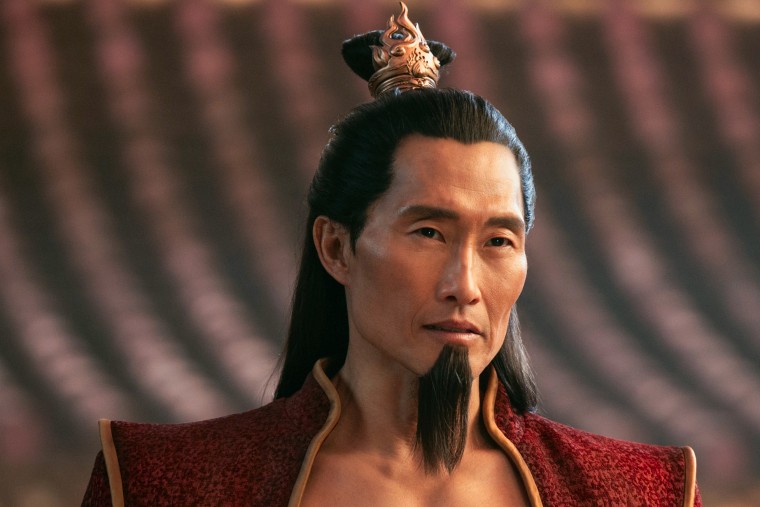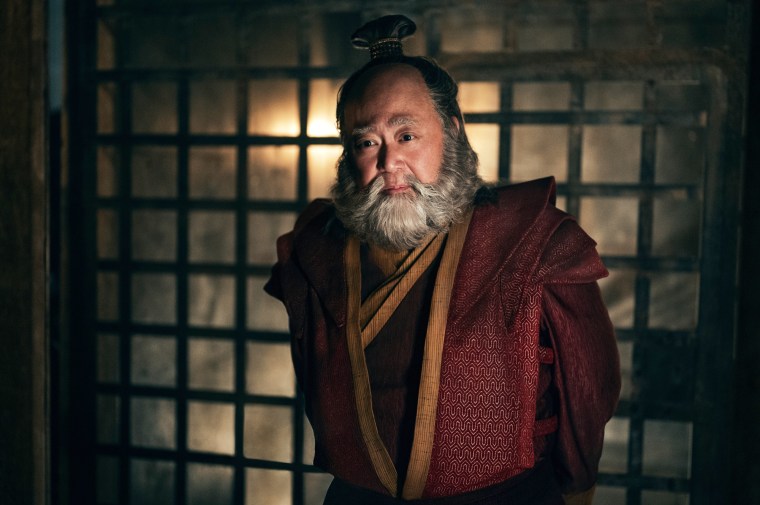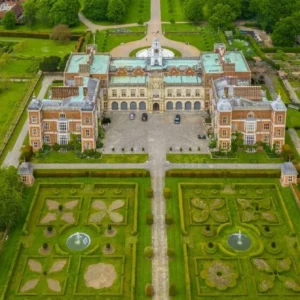
Daniel Dae Kim as Ozai in season 1 of “Avatar: The Last Airbender.”
Netflix’s new series “Avatar: The Last Airbender” tackles heavy topics like war and exploitation and, according to actors in it, the showrunners didn’t hesitate to depict them in a graphic way.
The live-action series is a departure from the animated Nickelodeon show on which it’s based on, which only alluded to instances of genocide and murder. Actors Daniel Dae Kim and Paul Sun-Hyung Lee said there’s a good reason for that.
Lee, who plays Uncle Iroh, a former general of the fictional country called “Fire Nation,” explained the show’s intentional display of brutality.
“I, as an artist who’s working in it, appreciate that we’re not watering it down necessarily to make it more palatable for the audience,“ Lee said. “The scope, the epicness of it, the themes that we’re trying to explore, I think you can’t be too light-handed with it. And this is what I appreciate as a fan as well. And I think a whole generation of original fans would like that sort of change where it’s stepped up.”

“Avatar: The Last Airbender,” which debuts Thursday, follows the journey of a young monk and his friends as they travel through the world to master the four elements and save the world from the militaristic Fire Nation. While the live-action adaptation honors storylines and themes of the original, creator Albert Kim told IGN the show is “a remix, not a cover.”
Kim, who plays Fire Lord Ozai, a villain bent on conquering the world for the supremacy of his people, said the depiction of war in the series is timely.
“It is just a part of our history, and this show reflects a lot of things that are in our culture currently as well,” Kim told NBC News. “This idea of an imbalance of power, the idea that people are seeking power without the responsibility that it comes with.”
“I think it’s an appropriate show for our times,” Kim said.
The original “Avatar” animated series was noted for its critique of imperialism and for capturing the devastating impact of century-long warfare on cultures, families and nature.
While the eight-episode show depicts the Fire Nation attempting to conquer other nations, it also aims to explore the complexities of intra-regional politics — and how differing opinions on peace and war exist within the same people.
“Colonialism, imperialism is not just one race against another. It’s one nationality against another. It’s one region against another,” Kim said. “If you look at the history of just Asia, how many times has Korea been conquered? How many times has China had a revolution? Even going back to dynasties, it was one dynasty overthrowing another.”





